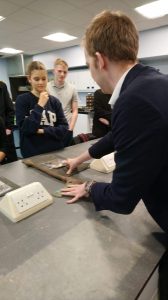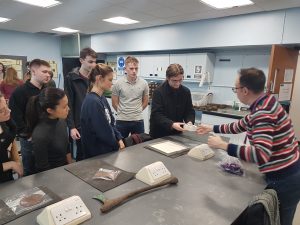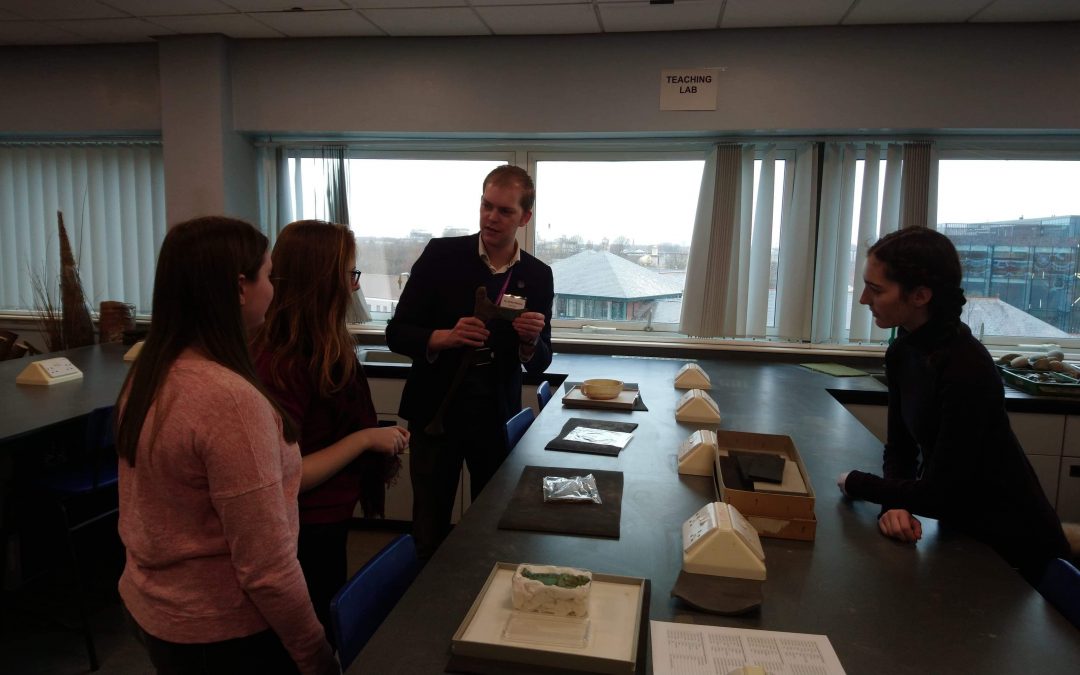It’s the time of year, the time when hundreds of thousands of prospective students around the UK and the world are making up their minds about which courses to pursue and what universities to apply for. As preparation for our move from the Faculty of Biology, Medicine and Health to the Faculty of Humanities, the Manchester Egyptologists have been taking part in the Open Days/Visit Days for the Department of Classics, Ancient History and Archaeo

Dr Nielsen talks about the Abydos axe-head and about Egyptian weapons technology more broadly
logy. These days constitute opportunities for prospective students (and their parents) to visit the universities, meet with the academics and – excitingly – get a chance to handle some genuine ancient Egyptian artefacts, courtesy of the Manchester Museum.
Today, Dr Nicky Nielsen was joined by the Curator of Ancient Egypt and the Sudan in the Manchester Museum, Dr Campbell Price, for a handling session in the Archaeology Laboratories on the Manchester campus. Dr Price brough

Handling sessions give students the opportunity to study ancient objects up close under the supervision of experts
t out some of the treasures from his stores, including a Middle Kingdom bronze axe-head from the site of Abydos, a Third Intermediate Period shabti belonging to an Overseer of the Treasury by the name of Pa-ib-mer and a beautiful New Kingdom alabaster bowl, also found in a tomb at Abydos.
These handling sessions not only provide prospective students with a chance to handle and investigate genuine archaeological objects, but also to learn a little bit about what such objects can tell us about ancient cultures – and crucially how selective survival and over-representation of elite objects can colour our interpretations of the ancient Egyptians and create serious biases in the way we study this fascinating culture.
The Manchester Museum collection is a crucial component in the teaching strategy of Egyptology at the University of Manchester. Through handling sessions with face-to-face students, and via recorded videos in the Manchester Museum stores for our online students, the collection informs and contextualises our teaching, and we hope to continue our cooperation with the amazingly talented Manchester Museum staff long into the future.







Recent Comments